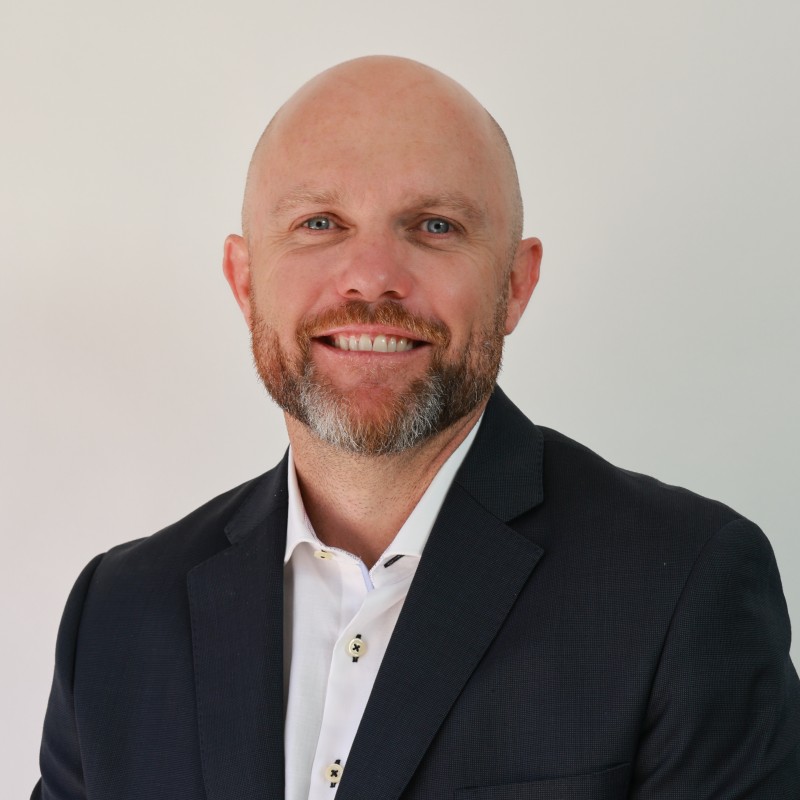“It’s just about productivity. It’s about how can I take a number of systems and simplify them. By systems, I mean, both technology as well as business processes. It’s about how can I just take that technology, and make people’s jobs a bit more interesting. Isn’t it a much better idea to try and automate some processes using technology, and let those people rise and do something a bit more interesting?”
– Don McLean, PKF Digital.
The next few interviews on the Cloud Stories podcast are live from SuiteWorld 2023 in Las Vegas, USA.
I was kindly hosted by Oracle and attended Oracle NetSuite’s largest annual gathering of the NetSuite community, at their flagship conference SuiteWorld 2023.
It was a conference on a scale I’d never seen before. I tried to absorb everything. There was so much happening at the conference, and also along the Las Vegas strip. Hopefully over the next few episodes, you too can share in the energy and insights from the comfort of where you listen to podcasts!
Today I’m speaking with Don McLean, CEO of PKF Digital, who shares insights and experiences from his 20 year journey with NetSuite.
PKF Digital is a leading NetSuite Solution Provider, based out of Sydney Australia. They are a team of experienced consultants, developers, and support specialists who work with businesses of all sizes to help them make the most of NetSuite and other cloud-based technologies.
We’d just attended a keynote entitled “SuiteUP!” delivered by NetSuite founder and EVP Evan Goldberg. It is truly amazing that he founded the company and has stayed there in the role for 25 years. His talk was quite personable. He raced on stage without a ‘suit’ and a lady rushed up to the stage with a ‘suit’ which gave him the opportunity to ‘suit up’ in front of us. Every so often as he would deliver his talk, he broke out into a fast-talking used car salesman-type rap, and encouraged the audience to take advantage of special deals on offer. A waving inflatable tube man even appeared on stage during the rap!
There is a bit of background noise, but I don’t think you will find it too distracting.
In this episode, we talk about . . .
- Don McLean’s background and history with NetSuite over 20 years
- The benefits of NetSuite’s multi-tenant architecture and how it cuts costs
- How NetSuite enhances business productivity through integration and visibility
- Triggers for when a small business should consider an ERP solution like NetSuite
- The partnership between PKF and NetSuite and how they work with customers
- A case study of how NetSuite improved Thermomix’s profits and efficiencies
- Topics discussed at Suiteworld 2022 like AI, benchmarking, and productivity tools
- Don McLean’s key learnings around NetSuite’s investments and applications of AI
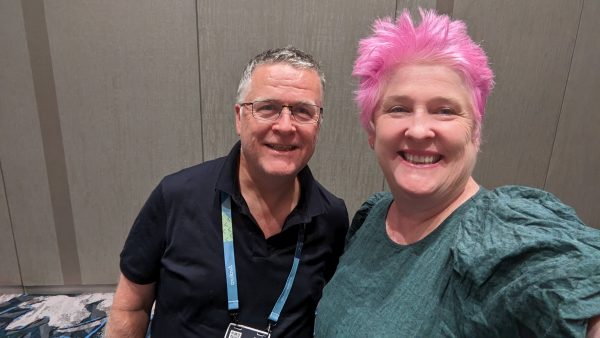
Can you share with us who you are, where you’re from, and what you’re doing here today at SuiteWorld 2023?
Don: Well, thank you very much for inviting me onto your podcast, Heather. That’s really cool to be here. Despite my accent, I’m from Sydney, Australia, and originally from Scotland. I’ve lived in Sydney for 26 years now. The reason for me being here is clearly to come to SuiteWorld, understand a bit more about the strategy, and really celebrate the last 25 years of which I’ve been involved in NetSuite on and off, for about 20 years of that. So it’s really great to see some of the people that I haven’t seen for a while and reacquaint myself and do a bit of networking as well.
When was your last SuiteWorld conference?
Don: The last Suiteworld? Last year. And that was the first one after the pandemic. So I think there wasn’t one for two or three years, but prior to that. So it’s been good. And it’s been a great energy. I’ve had somebody telling me earlier that there are more people here than there ever has been. And the energy in the room at the keynote was just fantastic. And that’s great. Good to see all the artificial intelligence stuff, as well. You know, it seems to be the topic these days. But yeah, that’s really cool to see it actually be practical as well, rather than just ChatGPT.
Heather: Yeah. ChatGPT, which is just a sort of component of it.
Don: Yeah, exactly. Absolutely. And a lot of people think that is artificial intelligence. But as I’m sure you know, it’s not. It’s just one component.
Heather: Yes, I’m sure. I’m sure our audience knows. Because we drill it into them many times. And Artificial intelligence has been around for decades. We just keep evolving and evolving and evolving. It’s very exciting where it’s going.
Can you elaborate on your belief that technology should assist in delivering business results?
Don: That’s a big question. I think it’s really straightforward. I think sometimes in the technology game. And then the industry that I’ve been in for 30 odd years, we complicate things. We give them three-letter abbreviations, you know. And it becomes something is a bit more difficult to understand. And it’s not, it’s really quite simple. I believe it’s just about productivity. That’s all it is about. It’s about how can I take a number of systems and simplify them. And and by systems, I mean, both technology as well as business processes. Maybe it’s a system that you could do that’s maybe been done manually, maybe it’s been done using paper, rather than actual technology. And that’s what it’s all about. That hasn’t really changed in the last 20 years. It’s really about how can I just take that technology, and make people’s jobs a bit more interesting. Particularly, these days, it’s really difficult to get good people. And so isn’t it a much better idea to try and automate some processes using technology, and let those people rise and do something a bit more interesting? So it’s not even about people losing jobs. I believe that, you know, is over. It’s really about how you help them do more.
Heather: It’s interesting. We are in Las Vegas and wandering around. Even the stores here have got, “please, be kind”, “we’re short of staff”, “things are going to take a little bit longer”… And I’m finding that sort of wherever you are in the world, that seems to be the be the case.
Don: For sure.
Heather: So that is perhaps where automation and technology content save us with that.
Tell us more about how you launched NetSuite into the Australasian marketplace in September 2003.
Don: It makes me feel old. I mean, it wasn’t just me. It was a number of people. I just was privileged to be involved in the company that did it. And I think I was the the one survivor, rather than anything else to tell the story as other others went elsewhere. But I mean, what a journey. It’s just been phenomenal. And I think the one thing that we did, and I was involved with my brother, which I believe actually worked for Oracle, just before he did that, and I was from a telecoms background. So I’ve worked for British Telecom for many years. And in between drinks at the pub, or games or golf, we would get to talk about what we thought was the future for technology, and with my telecoms background, you could see even in those days, the way that the bandwidth was going to expand that the internet was going to take off and with his sort of like knowledge of software…It was really about that convergence. So we started talking about what would it look like. And then he founded a company called Net Ledger. And he’s traveled over to San Francisco and managed to bring that over to Australia. And so we got started.
Heather: So you and your brother who did it?
Don: Absolutely. And other people as well, clearly. But it was that connection with Oracle and that connection with telecoms that really sort of gelled. And somebody once said to me. He said, like, the definition of a Pioneer is somebody who does something for about 10 years, and then spends the next 10 years trying to make the money back that they lost in the first 10 years, you know, for good salaries and stuff. So, but it was, you know, it’s been a great trip has been many ups and downs. There’s been, you know, good. Oh, it was funny at the keynote, earlier today. There was the familiar noise that we all had 20-odd years ago. The sound of a modem connecting, and the sort of like, you know, the little dashes going on to the windows. I don’t know, be Windows 95, or something like that. So it was those days. So it was, it was really strange trying to persuade somebody to move all their data from the cupboard at the end of the office into what we now know as the cloud. But then it was an ESP or something. And that was really, really difficult. It was difficult because people just didn’t believe that it was secure. There was only when we flipped to the other way around and said, why wouldn’t you that we actually started to get a bit of traction. Because there’s more security in a data centre, you know, eyeball scan, and to be able to get in and you know, your data is much more secure. But it was, it was tough because we were trying to get people to do things that we didn’t really want to do. But yeah, it really benefited them.
Heather: Yeah, absolutely. Thank you for that.
What convinced you that NetSuite is one of the best cloud technologies? And how does NetSuite enhance business productivity? How do you talk to someone about that?
Don: So to answer the first part of your question about why I believe that NetSuite is best, and then I’ll go on to the next book.
Heather: And that’s directly from your LinkedIn profile.
Don: Yeah, that’s fine. I do believe is the best. And the reason, if you think the technology as we used to talk about it ages ago, is really about a quite simple thing. To buy an Oracle database in those days, we’d be measured and hundreds of 1000s of dollars, right. And I think of that, if you’ve got the Oracle database as being the cake, if you will, right? People there’s no icing on top yet, but the cake. It costs you that amount to buy the cake. And the whole concept of NetSuite, which was revolutionary in its day was to call multi-tenancy, which, in effect, man, you weren’t buying the whole cake. You were buying a slice of that cake, but it was only the slice that you needed of that database with your data. And that cut costs tremendously. And NetSuite was probably the first company to do that in the cloud, in accounting. Salesforce, used a similar type of technology, but that was really in the CRM space. And so once you had that, and you had your data, that was number one. So that was great. Because you’re talking about it being cost efficient, if you will. The second part was really about the way that that data was produced into the browser using dashboards. And again, that that’s the rigour right now. Everybody’s doing it multiple ways of doing it, but it wasn’t then. And then being able to just surface that data. So the conversation was always about one version of the truth. Because your data across every aspect of your business inventor, accounts, receivables, your customer data, and so on and so forth. And that hasn’t changed. And then the third thing is the ability to tailor the system, add fields, use scripts, and so on and so forth. And then for the upgrades, and there was two every year, we’ve actually not caused that programming or scripting to fill. That was revolutionary as well. Because I think it’s still the case, you have an implementation of an on-premise piece of accounting or ERP software, and you change it when you go to the upgrades, you have to then go and re change it again. So it cost you more money. So those are the three fundamental things. And they still have the case today. And it’s really, really good and it’s proven. So 36,000 customers all on the same version on the software. And the second part of the question was about…?
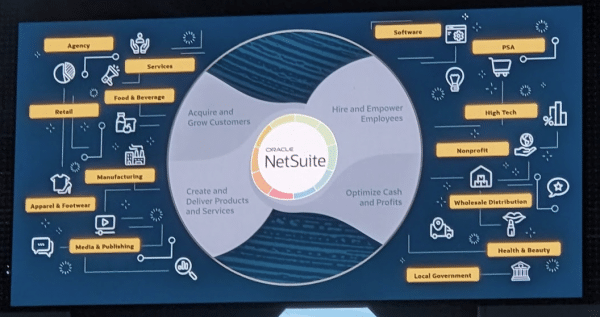
How did NetSuite enhance business productivity? If you’re talking to a new potential client, what would you say to them?
Don: It goes back to talking to the business. What we do is we go are a fairly unique way of doing that, where we start talking to them about what were the problems or the roadblocks that you’ve got. And we start digging into that, to see how we could replace some of those roadblocks with either what they’re doing with their existing system. Or if we can enhance that by implementing technology. So in effect, we spend a few days going through all those business processes, but not just looking at improving them actually finding out how much is costing them. So let me give you an example. You could be talking to somebody about their accounts receivables, and their accounts receivables are sitting on average of, you know, 25 days outstanding. I think these sales outstanding is the is one of the metrics. And of course, as soon as you start seeing, okay, what would it look like if you could reduce that by five days by using particular technology. That only gets you so far. It’s really about what does that mean to you in monetary terms? So if you can, say, five days here, therefore, you’re going to get your cash quicker. And what’s the interest you can make on that cash and so on and so forth. Or what could you use to deploy that. So it’s really spending time understanding those particular metrics. And then we put our report back to them as a consulting engagement, if you will, to see here is where you will be able to save cost, but also increased value. And that’s the fundamental thing about it. And all that comes down again, is to productivity. That’s what you’re trying to do. You’re just trying to make your people more productive, without adding more people to the problem, right?
Can you talk more about the partnership between PKF and NetSuite, and the relationship of them working with customers?
Don: Sure. I mean, the relationship that we’ve had for many years is a good one. Great people, you know. There are a lot of people within our business and within NetSuite business that we’ve known for, like literally decades. The partner program, the next we have got, which we participate in, provides a vast amount of resources. I mean, not only is the product pretty good in terms of some of the help systems it’s got. But they also have a program for partners called Sweet Life, everything in NetSuite begins with Suite. And so Suite life is almost like a way of life, in that you have a whole lot of different on-demand training, ways of helping us markets, Just a great raft of different things. And then, in particular, so we are we are talking to somebody in a wholesale and distribution environment. There’s a whole raft of different information that we can bring to bear across that value-added program that we talked about earlier, that allows us to really get down to the nitty-gritty. So we are, despite being part of a large organisation, for about 1000 people in Australia, our part of the business is only 20 people. So we don’t have the resources to be able to create consulting engagements, but NetSuite give us that resource. And so we utilise a whole load of that, and bring it to bear. And that really helps. So we are kind of at the tip of the iceberg, if you will, with everything underwater as NetSuite with everything that sort of like you know, they’re to help us to sustain the conversation with our customers.
Heather: Thank you for that. So many of our listeners are sitting in the small business accounting world. And they’re contemplating app stack. By app stacks, I mean, sort of smaller, plug-together solutions from lots of different areas.
Don: Yeah.
What are the triggers or indicators that they should start contemplating an ERP solution like NetSuite?
Don: So most of your listeners are accounting or accountant-related. And it’s actually interesting because I believe that’s exactly where it starts. Because, the triggers are twofold. Let’s face it. My guess would be that most of your listeners will be using Xero, for instance. If they’re contemplating going to an ERP system, that’s probably where they’re starting. Xero is phenomenal product. Really, really good. But when you start having inventory for instance, Xero doesn’t really do inventory that well and you’re starting to then having to integrate. Then you’ve got an Excel spreadsheet maybe with your customers on to track sales or prospects or whatever. As soon as you start introducing those different as you put it, the AppStack, you introduce integration problems as in you’ve, you can’t change the phone number in one system and reflect everywhere. So that’s one indication. NetSuite historically always referred to that as a hairball, which is really good way of thinking where you’ve got all, or maybe spaghetti is a better way of putting it. Because you’ve got that physical integration that you haven’t to do. But there’s all those islands of data everywhere. So that’s one indication. And again, that goes back to productivity. If you’re finding that you’re having to type different things into different systems, or it takes you days, if not weeks to get your reporting system. And then of course, once you’ve done the reports that I did, by definition, so there’s one indication, the other one that we use quite a lot now, and it’s it talks to the growth of a company. When they start off, they tend to have maybe one instance of Xero, when you start adding more instances of Xero because you got more companies or you got more countries, that’s a great example of when you should start looking for a bigger system. Because the consolidation that you have to do becomes really complicated. And I’ve seen some horrendous spreadsheets that we do for clients and the accounting side, where there’s like 32 tabs of different results, trying to reconcile currencies and tax regimes and all the rest of it, and NetSuite and systems like it, they cope with that really well. All the elimination accounts, all the way of being able to slice and dice the data. So you could see across all of your companies just by product line, exactly what’s happening. So you can then diagnose problems, or see surface information in different ways. And that’s that’s one sort of benefit of having that whole system there as well.
Heather: So you’re really business is becoming complex. And you’re looking to scale.
Don: Yeah, absolutely. And those are just indicators of when you should be thinking there must be a better way to do this. Because you want to get on with running your business. You don’t want to be mucking around with spreadsheets. Well, some people do. But generally, it’s not aware of this.
Heather: Accountants love spreadsheets.
Don: Well, they do. And it’s interesting that when having just no working in an accounting thing, I walk into the office, yes, I do walk into an office. And there’s a lot of Excel spreadsheets around. That’s not to say you have to stop using your Excel spreadsheets. That’s not what I mean. So I would never take that away from them. But there’s a better way of getting the information from an integrated system into the spreadsheet for you to do your analysis.
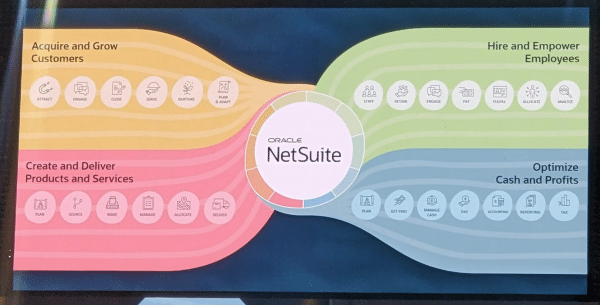
Can you talk about the conversion process that accountants and bookkeepers need to start getting their head around?
Don: Sure. So there are a number of things that you need to think about. The first one is data. And when you think about it, it’s really all about data. You know, an accounting system is in effect a database, that’s just got some logic and on top of it. So how much data do I want to take from my existing system? And where do I want to put that. That sounds like it should be really easy, but it’s not. Static data and what I would call dynamic data are very different. By static data, I’m thinking about customer records. So they’re pretty much you know, the address, what the total sales were the last year, the year before. That’s pretty standard and easy to take across. But the better you should really think about, and quiz, whoever you’re talking to employ in the system is about dynamic data. What about the invoices? What about the sales orders? What were the cohorts? All that rich history that you’ve got, will you use it in the new system? If so, how will you use it? Is it okay, sorry, to go back to it? Is it okay to just keep it in Excel spreadsheets? Or is there some archive system that you can just keep. Because within the first year, you certainly want to do comparisons, for instance. So there’s that, there’s the data. The other thing that people forget about (I think this is really, really important). It’s not the technology, is the change. It’s change. From the way that I invoice a customer with a screen that looks like this to something that’s going to be very different. There’s a lot of training that we need to do. There’s a lot of consulting and set up and those particular elements. But think about one of the things we start talking to executives of companies is they’re about their digital maturity. So are the people in your organisation and digitally mature enough to be able to and want to cope with the next level of system? If that’s a no, then what do we do to train them to get them to that particular point? And nobody really thinks about that. They really don’t. But yeah, that can be the difference between an ERP implementation, failing or actually doing successful not. And there are lots of other things that you have to do, which are ticking boxes, but the technology tends to look after itself. It’s the humans we need to look after.
Heather: A lot of training and a lot of ongoing training as well.
Don: Yeah, exactly.
Heather: A new module comes out or updates. Like the guy on the stage actually said, I’ve been using it for a year. And every time I open it up, I find a new button or a new setting.
Don: Yeah. That can be good and bad, though. I mean, like, it sounds really, you know, interesting. It’s like opening a book and getting a new chapter that you never knew existed or something like that. But, I think that’s where the likes of ourselves as partners come in. Because it’s our job to understand the customer. And also understand the technology. So I always think of it as being, you’ve got one foot in the technology camp, you’ve got one foot in the business camp, and then you’re able to then think about your clients. I mean, even as you’re sitting in the keynote, and you look at a particular function, at the back of your mind, this is me, maybe it’s not everybody, I’m thinking that would be really good for customer x. So you’re mentally thinking and applying what is on a big screen in front of 10s of 1000s of people to the company that’s in Adelaide, that is do you know, making products and how that will affect them? And I think that’s the key.
Can you briefly share with us a case where NetSuite has improved client profits and efficiencies, maybe there’s one that you can mention.
Don: Sure. There’s a long-standing customer of ours, overland path in Western Australia called Thermomix. I don’t know if you’re familiar with Thermomix. How do we describe the Thermomix?
Heather: It’s a machine that does all the cooking that you could possibly want.
Don: That’s the one. I don’t have one myself.
Heather: Neither do I.
Don: Thermomix, for instance, they’ve been customers of ours for about eight years. And when they first came to us, the real problem was, they had a warehouse management system, they had an accounting system. And they had, I think it was a CRM system, all of which were different. So all of their customer database. The customers were at the time sell and direct. They did it in such a way. It’s almost like, it’s like a party. So somebody who’s the demonstrator chef comes along, and that’s the party of 20 people and does a demonstration and then takes orders. So it was a big, huge sort of like need to go from that sales process, right the way through to delivery, you know. With inventory, and then shipping and distribution and warehouse management and all sorts of ancillary goods. A very, very complicated process. And we moved them within nine months to NetSuite. And the productivity gains that they got were phenomenal. I think they were growing at the time, about 25% a year on year, which, which sustained it, but we didn’t help them grow by 25% year on year, per se. What we did is we made sure that they could do that and be profitable, and not have to recruit more people. So they would keep the costs, like the fixed costs, if you will, constant but grow revenue and increase profits. I think that’s a great example and was one of many that we’ve gotten. It allows them to relax and scale. I’m not sure they would say relax, but there’s certainly a bit more well…They can sleep at night, I think.
Heather: Not stress about their systems. And scale.
Don: Yes, exactly. And then they can think about what more they can do. Because sometimes these systems can be a bit of a competitive advantage. Because if you’re going to make sure that you’re going to deliver on time, then your customer quality, and customer satisfaction is going to go up. You put your customer satisfaction up. You get loyalty. Loyalty means that people are going to talk about it.
Heather: Oh. People do they talk about it.
Don: It’s almost like some form of religion, right? My business partners got one and he wouldn’t do without.
Heather: They do talk about it.
What’s one thing that you’ve learned from attending Suiteworld today?
Don: I have learned I’d be really interested in the AI stuff that’s happening. And I, as we talked earlier, there’s a lot of hype around it. And I was in a session that was following on from the keynote. There was in a session today, which was talking about, specifically what NetSuite is doing around that. So first of all, I learned that there’s a key team of 20 people has just been formed within NetSuite to tap into everything else in Oracle. They’re going to increase that in three months to 100 people. So it’s a fairly significant sort of like step up and investment in AI. And it’s not that there’s an element of the ChatGPT. But the real key to this, and some of the things that we’re showing us is how you can apply it to help. Again, goes back to productivity, right. And given an example of how you can get it to amalgamate a whole lot of different fields, to write a product description that can automatically go into a website. And if you’re implementing a system that’s got 60,000 products, that’s a big job. And if you can get somebody like any I set off to do it, and get that AI sort of like, ChatGPT, like the thing to do within the product, with no additional charge, so I’m insured. And that’s just one example of many that they’re trying to do. Then you start seeing things like all the data that’s there with the proactive or preemptive. It’s like a one example that was given was about cash. I want to my sales are down, what’s the effect on cash? And then it’s almost like going through a scenario analysis to say, okay, what if I did this? What if I discounted the power product by that amount? What is it likely to do based on all the history and the richness that you’ve got. Sometimes external information, you know, the classic ice-cream vendor, there’s going to sell more ice cream and hot days rather than in the middle of winter. And taking all that. So it’s the practical elements of that, that make it easy, because it’s put into the product for us all to use. So we don’t need to reinvent that. That is the one key learning I’ve taken from the last couple of days.
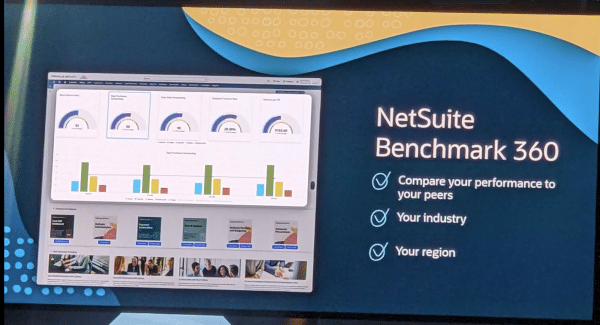
Heather: Should be very exciting. What piqued my interest was the NetSuite Benchmark 360 solution they were talking about. Saying how not only would it benchmark not only would it compare you to your competitors, but using anonymized aggregated data. But it would surface suggestions of how your competitors were improving their productivity. And perhaps you should be doing this.
Don: I mean, how cool is that?
Heather: Yeah.
Don: And that to me, again, is productivity. That’s taking something and letting digital technology help your business. And that’s what it’s all about.
Heather: Yeah, absolutely. So thank you so much, Don, for joining me on the Cloud Stories podcast.
How can listeners get in contact with you?
Don: Well, thank you for having me. They can get in touch with me quite easily via email at don.mclean@pkf.com.au.
Heather: Thank you so much.
Don: Thank you.








